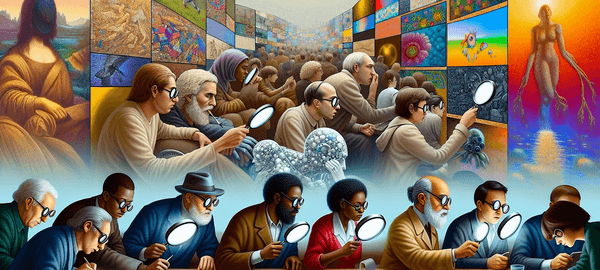Wikipedia editors face an unprecedented challenge: combating AI-generated content with human ingenuity.
In a startling twist, AI’s rise has created an unexpected battleground: Wikipedia. Editors are now grappling with a flood of AI-generated content, reminiscent of the privacy concerns surrounding smart glasses. This digital cat-and-mouse game is reshaping how we curate knowledge online.
As a tech enthusiast and musician, I’ve witnessed AI’s impact on creative fields. Once, I mistakenly used an AI-generated chord progression in a composition, only to discover it was eerily similar to an existing song. That experience taught me the importance of human oversight in AI-generated content.
The Wikipedia Editors’ AI Content Battle
Wikipedia editors are facing an unprecedented challenge as AI-generated content floods the platform. The rise of large language models like OpenAI’s GPT has led to a surge in plausible-sounding but often improperly sourced text. Editors are now spending more time weeding out AI filler alongside their usual tasks.
Ilyas Lebleu, a Wikipedia editor, has co-founded the ‘WikiProject AI Cleanup’ to develop best practices for detecting machine-generated contributions. Interestingly, AI itself proves useless in this detection process, highlighting the irreplaceable role of human expertise.
The AI CHECKER challenge extends beyond minor edits. Some users have attempted to upload entire fake entries, testing the limits of Wikipedia’s human experts. This surge in AI-generated content underscores the growing need for robust verification processes in our digital age.
AI CHECKER: Revolutionizing Content Verification
Imagine a platform that combines AI and human expertise to verify online content authenticity. This AI CHECKER service would use advanced algorithms to flag potentially AI-generated text, then route it to a network of expert human reviewers for final verification. The platform could offer tiered subscriptions to websites, publishers, and individual users, providing real-time content verification. Revenue would come from subscription fees and API access for large-scale content providers. This service would be invaluable in maintaining the integrity of online information across various platforms.
Empowering Human Wisdom in the AI Era
As AI continues to reshape our digital landscape, the role of human discernment becomes more crucial than ever. Wikipedia’s battle against AI-generated content serves as a wake-up call for all of us. How can we harness AI’s potential while preserving the integrity of human knowledge? What steps can you take to become a more discerning consumer of online information? Let’s start a conversation about balancing AI innovation with human wisdom.
FAQ: AI Content and Wikipedia
Q: How prevalent is AI-generated content on Wikipedia?
A: While exact figures are unavailable, Wikipedia editors report a significant increase in AI-generated contributions, necessitating the creation of specialized cleanup projects.
Q: Can AI detect its own generated content on Wikipedia?
A: No, current AI systems are not effective at detecting AI-generated content, making human expertise crucial in this process.
Q: What are the main challenges of AI-generated content for Wikipedia?
A: The primary challenges include improper sourcing, potential for creating entire fake entries, and the increased workload for human editors in detecting and removing such content.
